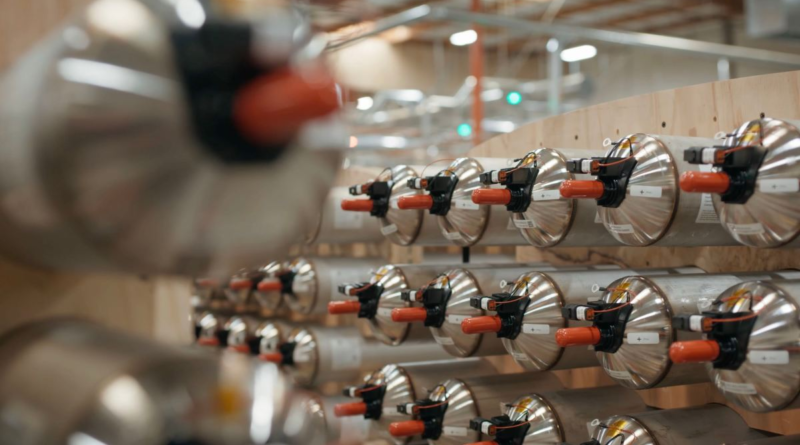Novel battery manufacturer EnerVenue is raising $515M, per filing
EnerVenue, a startup that has developed an alternative to lithium-ion batteries for long-duration renewable energy storage, is raising $515 million in fresh equity, per an SEC filing seen by TechCrunch.
The company is in the process of building a gigawatt-scale factory in Kentucky to produce its nickel-hydrogen batteries, an endeavor that’s estimated to cost $264 million. The company most recently raised $125 million in a Series A round that closed in late 2021. Given the scale of the factory investment, it’s likely that the new funds will go toward the project.
So far, EnerVenue has raised $308 million of the $515 million target, the filing says. A company spokesperson did not immediately respond to a request for comment at the time of publication.
The startup’s nickel-hydrogen technology is based on batteries that were originally used to store power aboard the International Space Station and in satellites, like the Hubble Space Telescope. In many ways, nickel-hydrogen is an ideal type of battery for spacecraft: The chemistry can withstand freezing cold and blistering heat, and it doesn’t lose much capacity over time, meaning it can last as long as the craft is expected to live.
But nickel-hydrogen has historically been expensive. For space-based applications, that’s less of a concern; cost is often far down the list of priorities. But on Earth, cost tends to reign supreme.
The equation changed, though, when Yi Cui, a professor at Stanford University and chairman of EnerVenue, tweaked the chemistry to remove expensive platinum. Cui expects that adjustment and others to help drive the cost per kilowatt-hour down below $80 when the batteries are produced at scale.
The batteries themselves more closely resemble elongated SCUBA tanks than AA cells. That’s because they have to contain gaseous hydrogen, which is released when the battery is charged.
Nickel-hydrogen batteries aren’t as energy dense as lithium-ion, meaning they won’t be competing for space in electric vehicles quite yet. But because these batteries can withstand a wide range of temperatures, they don’t need expensive cooling equipment like lithium-ion cells. EnerVenue is betting that its compact arrangement and low maintenance requirements will draw the attention of utilities, who are searching for ways to store excess renewable power. Last year, the startup said it had 7 gigawatt-hours worth of commitments from customers.
The scale of the new round reflects the challenges that many hardware-based climate tech companies face when attempting to scale up to meet commercial demand. Building the first-of-a-kind factory is often expensive, but the risks involved mean that infrastructure funds hesitate to offer the necessary credit. As a result, startups often have to raise large sums from venture firms, trading equity for the money needed to build large projects. Finding firms willing to take the risk is a hurdle in and of itself.
EnerVenue appears to have at least partially surmounted that hurdle, finding enough investors for a sizable Series B. The next challenge will be completing the factory, scaling production and sending its novel batteries out into the world.




